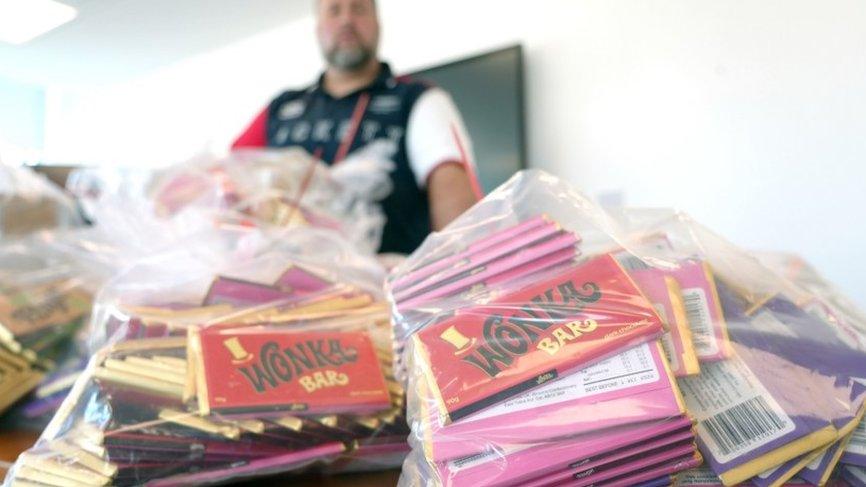Imported US sweets with illegal ingredients seized
- Published
- comments
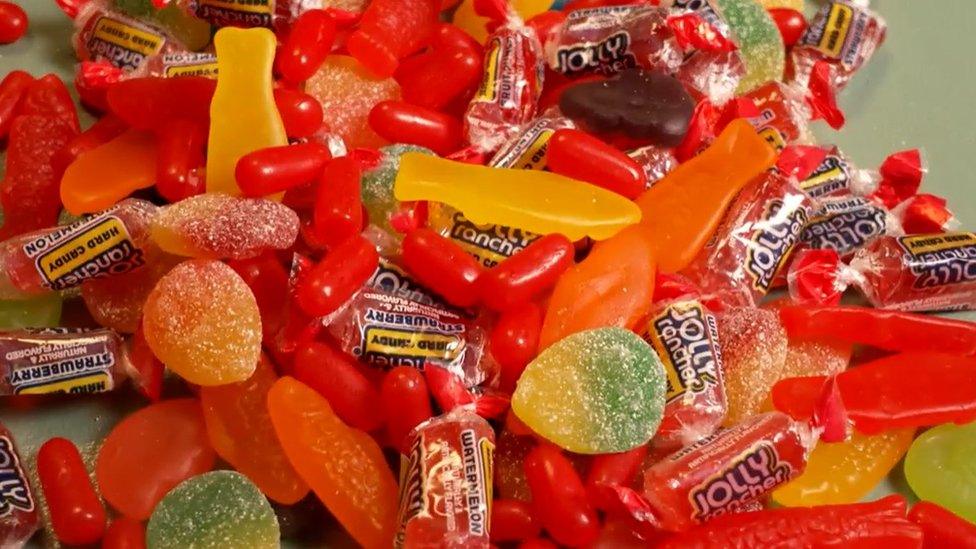
Products including Jolly Ranchers and Swedish Fish contain compounds that are banned in the UK
Sweets imported from the US containing illegal ingredients have been seized from shops across the country.
Mountain Dew drinks, Jolly Ranchers, Swedish Fish and Lemon Heads are advertised on TikTok and Instagram and are popular stocking fillers.
But they contain carcinogenic and genotoxic ingredients that have been banned by the UK government.
Manufacturers said they were not involved with the sale of their products in this country.
In Staffordshire, trading standards officers seized £8,000 of illegal sweets from 22 shops.
In one raid in Burton-upon-Trent, over £300 worth of banned confectionery was found in a local corner shop.
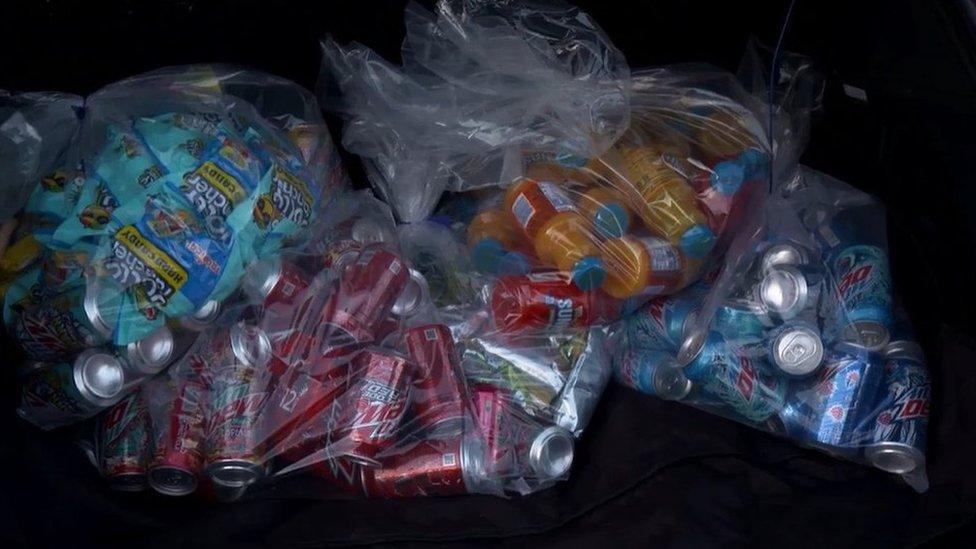
The sweets and drinks have been found in small independent shops as well as large UK retailers
They included Jolly Ranchers hard sweets containing mineral oil, which if contaminated with other compounds can initiate cancer formations.
Calcium Disodium EDTA, which is banned within drinks in the UK, was found in Mountain Dew.
In animal studies, the crystalline powder caused adverse reproductive and developmental effects and has been shown to contribute to cancer of the colon.
"People are selling these products not realising they have banned ingredients in them," Stephanie Young, trading standards team leader in Staffordshire, said.
She said some of the products can be on the UK market legitimately if they comply with food standards but those found on the raid were "American branded and not destined for the UK".
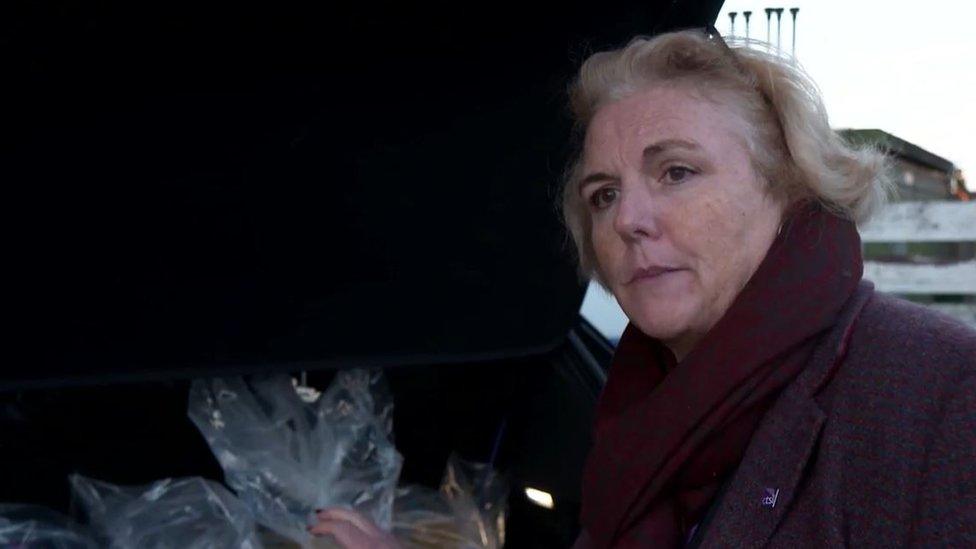
Stephanie Young said many selling the sweets do not know the ingredients are banned
Morning Live spoke to parents on the streets of Manchester who said their children loved candy manufactured in the US.
"I think they see the marketing and go right for it," one mum said.
Ms Young said it wasn't just small independent shops stocking the sweets. They have also been found larger retailers and supermarkets.
Last year, £25m worth of US sweets were imported which is 70% more than in 2017.
"It's obviously getting through the ports somewhere," Ms Young, who is also lead officer for the Chartered Trading Standards Institute (CTSI), said.
"The volume of stuff that we get through the ports, only a small percentage will be checked," she said.
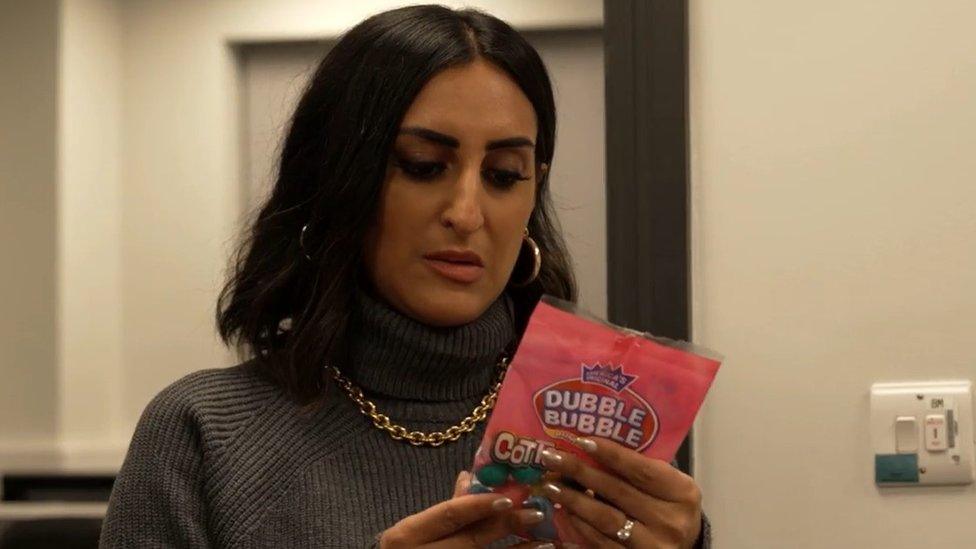
Dr Punam Krishan warned against buying them as stocking fillers
Emeritus Professor Erik Millstone from the University of Sussex said the amount of banned products finding their way onto shelves was concerning.
"The US typically demands proof that something is harmful, whereas here we are prepared to restrict compounds even if there yet isn't sold proof," he said.
"Don't panic about anything you've done in the past, but if you can avoid them in future that's a prudent thing to do."
The manufacturers of Lemonheads, Starburst Gummies, Hershey's and Jolly Ranchers told the BBC their products were produced legally in the USA and that any products being sold in the UK were being done so illegally, and not associated with their brands.
Mars, which manufactures Starburst Gummies, added it had been working to prevent unauthorized third party importation of its products in the UK.
'Extremely worrying'
Dr Punam Krishan, investigating for Morning Live, said she had assumed sweets sold in the UK would be legal.
"Sweets and candy are meant to be a treat for children and adults and while they'll never be deemed healthy, to learn there are products that are on UK shelves that have ingredients that are not authorised in this country is a cause for concern," she said.
CTSI chief executive John Herriman said the UK "prides itself on high food standards" and that it was "extremely worrying" potentially dangerous products were on sale on high streets.
"Trading Standards work extremely hard to protect the public by removing dangerous products from sale, but the popularity of these items is being increased by videos on social media platforms, such as TikTok.
"The increase in demand means importers are sending these through our ports and borders in the millions, and these are then being widely distributed and ending up in retail stores and in the hands of children."
For more on this story watch Morning Live on BBC iPlayer

Follow BBC West Midlands on Facebook, external, X, external and Instagram, external. Send your story ideas to: newsonline.westmidlands@bbc.co.uk, external
Related topics
- Published27 November 2023
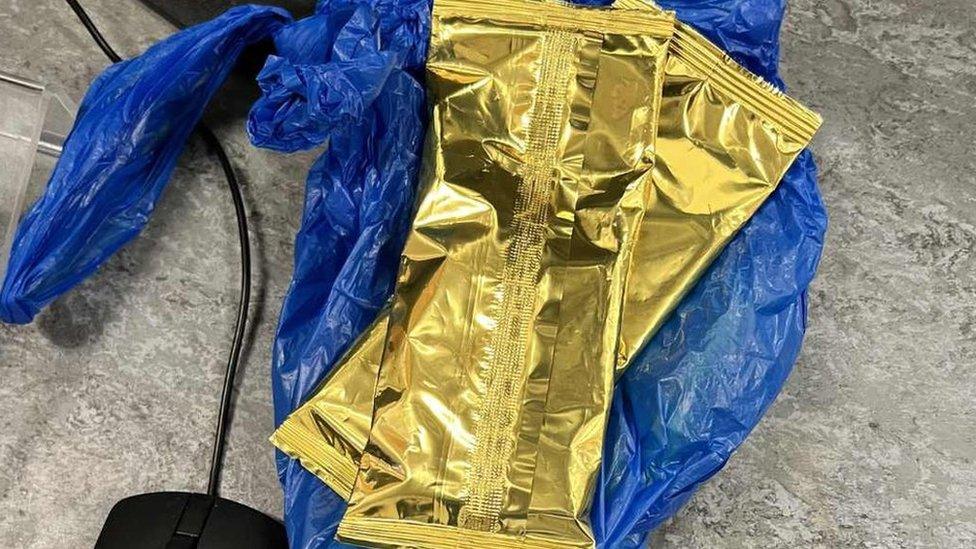
- Published15 June 2022
